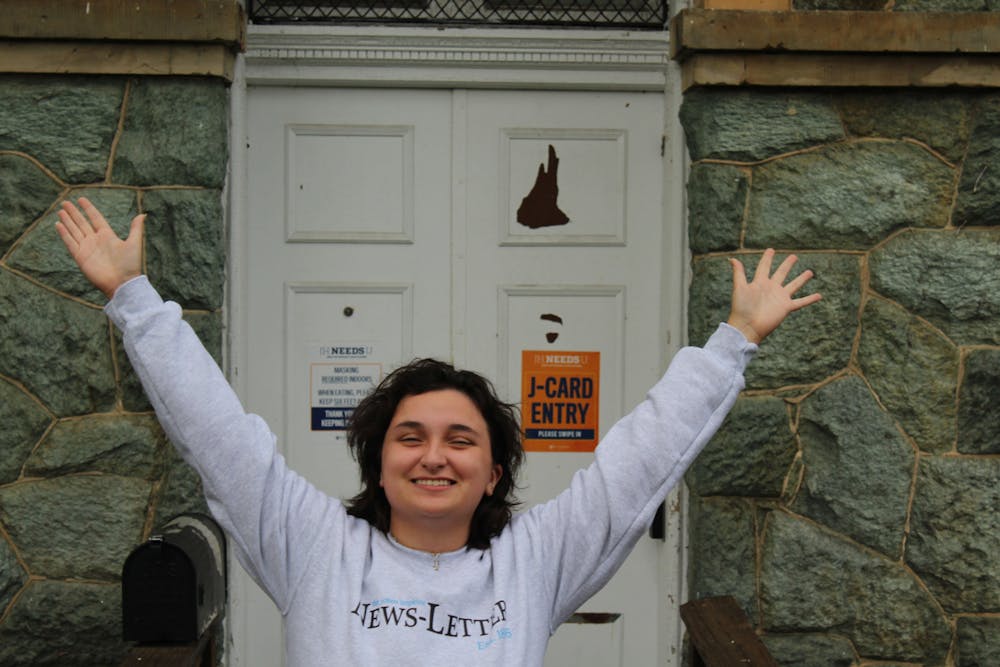It was late freshman year when I realized I wouldn’t be able to pass, nor did I want to.
On the verge of a crisis, I remember sending a series of panicked texts to my guy friend, asking how I could dress and act more masculine. He responded in confusion and afterward listed the kinds of clothes he wore. However I only felt increasingly alienated, as I’d tried his fashion style before — I had already tried the men’s button-down shirts but could never really “pass.”
To transgender people, the politics of “passing” are always in contention. Passing assumes that cisgender people are the status quo and that cisgender expression is the final goal of transitioning. I grew ever aware that I couldn’t pass without hormones and top surgery, and that even with the sports bras I tried using as temporary binders, my chest would cause increasing discomfort in how I presented myself.
I, instead, found comfort in flexibility — in the flexibility of the genderfluid and non-conforming label and in that I can articulate myself how I want people to see me and how I present on a day-to-day basis. If you asked me my freshman year, I would hesitantly say I’m non-binary while absorbed with feelings of self-hatred. I now say that I’m non-binary with pride.
I went through most of my four years as an undergraduate gradually coming out to people with the frustration that I had to “come out” instead of just “be” non-binary and my ideal expression of androgyny. It was a constant battle experiencing cis-normative gender expectations, body dysmorphia and leftover misogyny from those who thought I was a woman.
Even now I’ve had people come up to me and ask, “Why didn’t you tell me you were non-binary?” And while I appreciate the attempt at allyship, it was never their place to assume I was a woman. To be an ally is to actively find that information yourself and accept it instead of question it.
When a group facilitates a pronoun round of introductions because you’re in the room and the only one visibly genderqueer, it’s as much mortifying as it is liberating. It’s one of the drawbacks of visibility, but it has just as much power — I’ve had people more willing to be upfront about their gender expression when I introduce myself fully in a new space, and I’ve had people stop me after classes to privately come out to me.
Being non-binary and transgender during the pandemic was a different beast. It became easier to casually come out to professors and classmates. Slip in a he/they or a they/them at the end of the display name (that would get cut off anyways when a professor started sharing their screen). But in my experience, writing your pronouns in parenthesis wasn’t enough — it was never enough.
It all comes back to respect and recognition.
When I tried letting people use any pronouns to refer to me to try and escape even the binary of the “third-gender” that comes with solely using they/them pronouns (which would make a whole other article), they were more likely to refer to me in a feminine manner. And just as I’ve had professors who taught me the whole semester with my pronouns attached to the end of my Zoom name, I’d meet with them without pronouns attached, and they’d resume misgendering me.
They didn’t critically engage with what choosing those pronouns and other ways of referring to me actually meant, taking my exploration of gender and my comfort at face value. With graduation, I’ll be leaving that in the past.
For anyone who is exploring themself and their gender, these are only some of the challenges I faced. But there’s also euphoria and happiness in situations where your loved ones call you by your pronouns for the first time, or when your friends back you up and are allies to you in threatening cis spaces. Gender exploration was what saved me these past four years, and finding people who recognized me for who I am and actively engaged with my trans-ness is fundamental to my Hopkins experience.
Would I say there are institutional issues with how the University approaches trans concerns? For sure. Hopkins Hospital has an incredibly complex history with intersex and transgender youth: Hopkins Hospital’s John Money was the psychologist that led gender reassignment research, and the surgeries inspired by his research resulted in countless unethical and dehumanizing medical practices for intersex people. His legacy is still unaddressed. Hopkins also doesn’t fully cover gender-affirming surgery for all students, a vital procedure for any trans person.
But are there also gradually better conditions for LGBTQ students? Yes. Before writing this article, I had just attended my year’s Lavender Celebration in person after two long years of online programming. Being able to see queer students brought together in celebration was easily the highlight of my month. There’s a new Associate Director of LGBTQ Life Abbey Nawrocki, which means a new direction and new agenda for the office.
I also wanted to dedicate my immense gratitude to former LGBTQ Life director Demere Woolway, a close mentor in my journey with gender expression and, to be frank, multiple gender crises.
If you take anything from my reflection of these past four years at Hopkins, it’s that even if you’re comfortable in your current gender labels, explore and reflect on it. We’re raised to believe there are only two genders and that gender is a binary: That whole ideology is flawed. We’ve been raised to believe that there are only two ways to express yourself: also incredibly false. The system rewards conformity rather than embracing the creativity that comes with transformation and transition.





